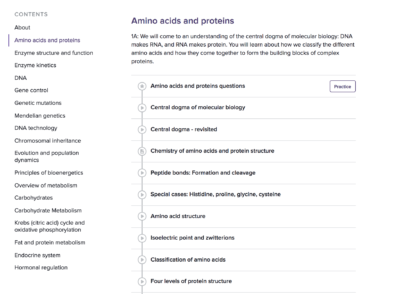Start MCAT Prep Today with These 2 Habits
You know you need to take the MCAT to get into medical school, but it's daunting. Read on, and we'll help you feel better about getting started.
There are few things more stressful for a pre-med student than studying for the MCAT.
It’s one of the most important exams you will ever take, and the odds of scoring high are slim.
How slim are we talking? Well, the average pre-med who takes the MCAT (average meaning falling into the 50th percentile) will score between 498 and 502, with the highest possible score on the MCAT being 528. That, unfortunately, means that the average score is not good enough, as the average matriculant (meaning someone who is accepted into a medical school) scores a 508.7. Now, a 508 on the MCAT is great, but also doesn’t mean you’ll qualify for acceptance into your top school.
Not only are there many, many other factors that go into a medical school admissions decision, but medical schools also vary widely in what a competitive score looks like for them. For example, the median MCAT score for a student accepted to Vanderbilt School of Medicine is a 520, while the median MCAT score for a student accepted to Texas A&M College of Medicine is a 510.
But that doesn’t mean you should panic. The good news for you is that there are a few simple, yet highly effective ways for you to start preparing for the MCAT today in order to increase your chances of getting a good score. Here are two quick daily habits to maximize your MCAT prep success:
Spoiler: If you stick around till the end, we throw in a bonus habit as well.
1. MCAT Question of the Day
This is possibly the most straightforward yet most underrated way to prepare for the MCAT. By signing up for an email program like MCAT Question of the Day or MCAT Question.com, you can receive daily MCAT questions to sharpen your MCAT knowledge and refresh yourself on information you have already learned. Expect to see questions like this in your inbox:
Q: Positive selection in the immune system results in:
a. apoptosis of T-cells which recognize self.
b. proliferation of T-cells in the periphery.
c. increase of the immune function of T-cells when they leave the thymus.
d. choosing only T-cells capable of recognizing MHC.
or this:
Q: The density of an unknown gas under STP conditions is 3.17 g.L-1. What is the molecular mass of the gas?
a. 3.1/24.5 = 0.13
b. 3.17/22.4 = 0.14
c. 3.17 x 24.5 = 77.7
d. 3.17 x 22.4 = 71.0
Fun stuff, right? All you have to do is submit your email on the website, start receiving daily questions like these ones, and deepen your MCAT knowledge. A friend of mine who took the MCAT earlier this year says five of the questions he had seen on these Question-of-the-Day emails showed up on the test on exam day. That’s five guaranteed precious correct answers.
By testing small, digestible amounts of material every day for a significant period of time, you’ll strengthen your MCAT muscles and allow you to score higher on test day.
2. Khan Academy Videos
Have you ever been studying a topic for the MCAT and felt completely stumped? For whatever reason, you’re just not getting it. Sometimes the best thing to do when this happens is to find an alternative explanation of the material that’s causing your confusion. One of the best resources for pre-med students when studying for the MCAT is Khan Academy’s MCAT Test Prep website.
How comprehensive is Khan? As comprehensive as it gets. Many students use only Khan Academy for their MCAT content review. The AAMC partnered with Khan Academy to ensure that every student who has access to a computer and an internet connection could get a full, free, 100%-in-depth content review of all the science material that is on the MCAT. Designed and approved by the AAMC itself, this section of the website has a comprehensive list of topics covered on the MCAT and a list of subheadings under each one of those topics. Here’s an example:

If you click through each of the subheadings on the right, you’ll find a list of videos underneath the sub-topic like this one:

If you are a freshman in college, make a schedule to watch one video per day. You will finish sooner than you think, and you will have learned everything you need to know for the MCAT before the start of your junior year. Already starting to study for the MCAT?
Watch all or any of the videos for more information and clarification about the topics you don’t understand. As an added bonus, every Khan video has practice questions associated with it, and there are hundreds of practice passages on the website. While it may not be a complete replacement for your MCAT study guide, it is a fantastic supplement. Next time you find yourself in need of MCAT clarification, check out this fantastic resource. The best part? It’s totally free.
BONUS: MCAT Practice Tests
Although taking a practice test is not something you can do daily, MCAT full-length practice tests are the best way to prepare for the exam. At the end of the day, the only way you can truly ensure that you are ready for test day is to build endurance and learn test-taking strategies. The best way to do this is to sit down and simulate the test day experience as accurately as possible by taking full-length practice tests. How do you access these full-length practice tests?
The only way you can truly ensure that you are ready for test day is to build endurance and learn test-taking strategies.
Some of the most popular companies that offer practice tests are Princeton Review, Examkrackers, and Next Step Test Prep. You will have to pay for most of these practice exams, but each one of these companies also offers at least one free practice test. That means that, if you utilize the free exams off each of these sites, you’ll have access to four or five full-length tests for absolutely free!
Now obviously, these practice exams are not perfect, and the most reliable set of practice tests are the ones that are offered by the AAMC. In addition to their full-length practice tests, the AAMC offers Question Packs and Section Banks, both of which will be bottom-line the most valuable resources for your MCAT studying.
Finally, don’t get discouraged if your practice test scores are below your standards. There’s always more studying you can do, but it’s also a known fact that many test prep company practice scores are severely deflated, that is you will actually score higher by a few points on test day than on a test-prep company’s full-length test. So don’t be blue if you are scoring lower on your Kaplan practice tests than you had hoped/expected.
If you are having trouble on a specific section like CARS, check out personalized tutoring services such as Jack Westin to meet your individualized needs.
Good luck with your studies, and keep on the lookout for much more detailed MCAT prep articles in the future as the testing season begins in January.



